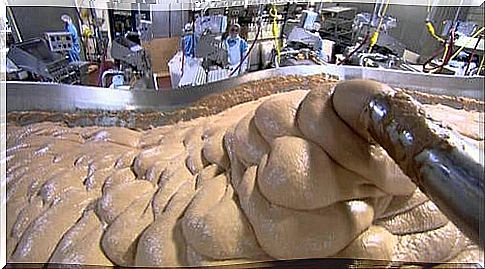Do You Like Hot Dogs? Do You Know What You Are Eating?
In addition to being made with poor quality ingredients, hot dogs could cause cancer, due to the nitrates and nitrites and other chemicals in hot dogs

Hot dogs or hot dogs are a very popular “food” around the world, especially in the United States, where people eat an average of 50 a year.
We all know that this food is not exactly the most recommended, because in addition to lacking the nutrients our body needs, it contains a large number of components that can affect health.
However, for decades hot dogs have become popular as an alternative food, often included in their diet by many finding them inexpensive and delicious.
It is true that consuming a hot dog from time to time does not harm the health of those who consume it. However, a recent study ensures that the daily consumption of this food increases the risk of developing cancer by 21%, to the point that it is compared with the risks of tobacco.
Are hot dogs harmful?
The Physicians Committee for Responsible Medicine in Washington DC promotes preventive medicine and a vegetarian diet as foundations for a healthier lifestyle.
The group of doctors believes that hot dog manufacturers should include a warning for consumers like cigarettes, in which they explain that frequent consumption of processed meats increases the risk of developing:
- Colorectal cancer.
- Hypertension.
- Obesity.
- Heart disease.
You can also read: Health effects when consuming sausages of animal origin
Studies reveal the dangers of eating hot dogs

The American Institute for Cancer Research (AICR) released a major report in 2009, after gathering data from more than 7,000 scientific studies, about hot dog sausages and the risk they pose with relation to cancer.
The AICR found that for every 50 grams of processed meat consumed daily, the risk of colorectal cancer increases by 21%.
However, the health warnings have hardly been heeded, as the consumption of this food is practically unstoppable.
Subsequent studies quantified the harm and danger of consuming hot dogs on a daily basis, and determined that, of the 143,000 affected annually, 53,000 die. Not enough to be alarmed?
Although some defenders of this food claim that the figures are greatly exaggerated and that it is ridiculous to compare the dangers of hot dogs with smoking, the truth is that studies have been able to support that the components of the sausages of hot dogs have serious effects negative health.
Do you know what you are eating when you enjoy a hot dog?
Some studies suggest that the carcinogenic effects of hot dogs are due to the content of nitrates and nitrites in hot dogs, but in addition to this, other factors also influence their manufacturing process.
To provide us with that delicious sausage that we love to eat and that always looks so fresh in refrigerators, manufacturers add a large number of chemicals that many of us ignore and that are the main causes of health problems.
But in addition to these chemicals, which considerably improve the taste of this “food”, the health risk is due to the low quality of production of these foods.
Most, if not all, factories use meats and meat by-products from the Confined Animal Feeding Operation (CAFO), where animals live and are tortured in unsanitary conditions. , overcrowding and unsanitary conditions.
The objective of these companies is to obtain a very cheap “food” as a result, but not of quality. Few amounts of quality meat are used in the sausage manufacturing process and are instead processed with items that include:
- Cartilage.
- Grease.
- Viscera.
- Exposure to bacteria.
- High sodium content.
- Flavorings.
- Preservatives
Also read: Why should we remove foods with preservatives from the diet?
Advertising vs Reality
Many are still unaware of the multiple risks of consuming hot dogs frequently, as advertising and the market have managed to blind consumers into believing that nothing happens if they consume this “food” frequently.
On the other hand, some hot dog manufacturers have already begun to share the risks of frequently consuming this food, but at the same time they continue to devise advertising strategies to reach the consumer and create a kind of addiction that it is very difficult for them to quit.








